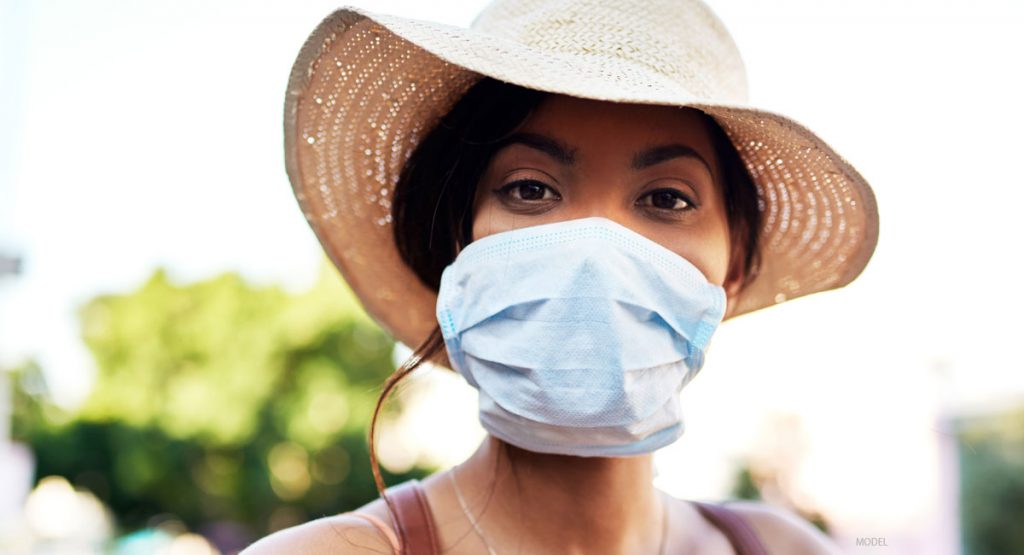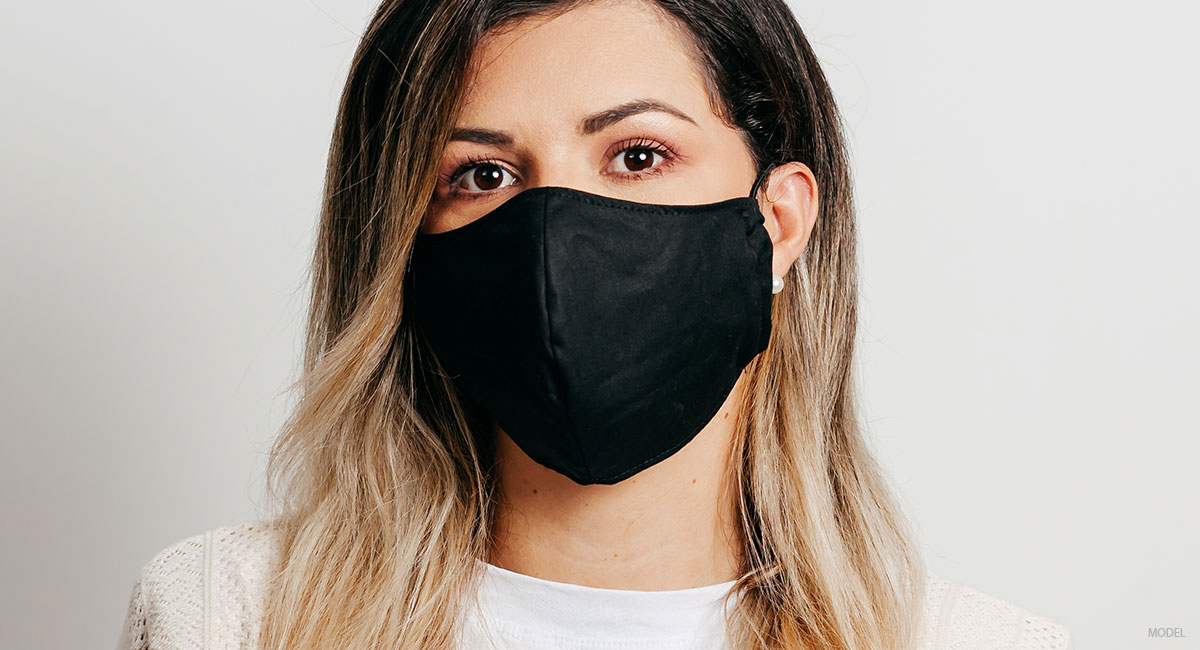
Have you heard of “maskne?” If you spend much time online reading about skin care, the chances are good that you’re familiar with the phrase. We’ve been asked about it at our La Jolla medical spa by both women and men. Google searches for “maskne” spiked in June and remains high as people realize that wearing masks—especially essential workers who wear them for hours each day—is causing acne flare-ups and other skin irritations.
Skincare in the Era of Masks
Wearing face coverings to prevent the spread of coronavirus is something most have been doing for several months and likely will continue doing until an approved vaccine becomes available. Wearing a mask at work for several hours straight is going to have some unintended consequences for some people, specifically those with sensitive skin.
As with other skin conditions, it’s important to understand the specific causes of “maskne” or other irritations before deciding how to treat them. We’ll explain the causes, discuss steps you can take to keep your skin healthy, and recommend some treatments to calm your irritated skin.
Causes: Masks create a warm, humid environment around the mouth—and that’s an ideal setting for yeast, bacteria, and other flora to grow. Ill-fitting masks that rub against your face can irritate the skin, but even the best-fitting masks can trap moisture, sweat, oil, and dirt close to the skin. This results in blemishes ranging from acne, small bumps, and inflamed hair follicles to pressure sores, rosacea, and perioral dermatitis (small pimples and pustules around the mouth). Adjusting masks or moving them to eat or drink worsens the problem.
Prevention: Washing masks often is a must—both to help keep your complexion clear and to keep them as effective as possible in limiting the spread of the virus. This applies to all masks, regardless of the material. There are other ways to minimize the chances of acne breakouts or other blemishes. Use gentle face cleansers before wearing a mask and then apply a cream to the area that will be covered. Creams can act as a barrier to the friction caused by the mask. These creams may include sunscreens with zinc or titanium or moisturizers. If you take these steps and see little or no improvement, you may need to change the type of mask you’re wearing (unless you work in health care).
 Treatments: Most people treat maskne by using cleansers containing salicylic acid or benzoyl peroxide. It’s important to remember that products containing benzoyl peroxide may bleach your mask. Occasionally washing your face with sulfur shampoos can also help. Sulfur works similarly to benzoyl peroxide and salicylic acid but tends to be gentler on the skin. Sulfur dries out the skin’s surface to help absorb excess oil that may contribute to acne breakouts. You can also ask our med spa team about helpful skincare products that include free shipping.
Treatments: Most people treat maskne by using cleansers containing salicylic acid or benzoyl peroxide. It’s important to remember that products containing benzoyl peroxide may bleach your mask. Occasionally washing your face with sulfur shampoos can also help. Sulfur works similarly to benzoyl peroxide and salicylic acid but tends to be gentler on the skin. Sulfur dries out the skin’s surface to help absorb excess oil that may contribute to acne breakouts. You can also ask our med spa team about helpful skincare products that include free shipping.
If you’re dealing with maskne or other mask-related skin irritations, you can get more information about prevention and treatment from one of our skincare specialists. Their expertise is the reason La Jolla Cosmetic Surgery Centre is so popular with San Diego residents. You can use our online form to request a free consultation or give us a call or text us at (858) 452-2066 to schedule an appointment.

